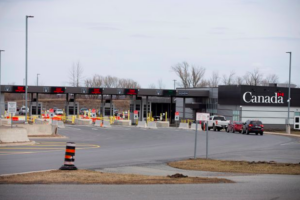Traditionally speaking, Canada Border Services Agency (CBSA) always relied on the Immigration Department guidance to interpret the Immigration and Refugee Protection Act. However, the travel restrictions that came into effect as a result of COVID-19 pandemic are made by ways of Orders in Council (approved by the federal government) relying on the Quarantine Act, not the Immigration and Refugee Protection Act. As a result, border services officers are not referencing immigration legislation at all, and interpret the guidelines very differently according to the Quarantine Act. On the other hand, the Immigration Department continuing to publish guidelines followed by the Orders and in line with the department’s own legislation. The end result is that the discrepancy between interpretations of CBSA and IRCC has created a chaos at the border and many people are being refused admission into Canada because their travels are deemed “non-essential and optional” by border services officers.
 To determine who can successfully cross the border and enter Canada from US, CBSA has drafted and heavily rely on internal guideline to its staff at the border who get the final say on who can cross the Canadian border. When you get to the border, you will need to explain to CBSA officers why your trip is essential at this time, during a global pandemic when travelling poses an imminent health risk. You also need to have an adequate plan to quarantine for two weeks, if you are not exempt. Failure to meet these requirements may result in being denied entry to Canada, or having to carry out quarantine in a government-approved facility.
To determine who can successfully cross the border and enter Canada from US, CBSA has drafted and heavily rely on internal guideline to its staff at the border who get the final say on who can cross the Canadian border. When you get to the border, you will need to explain to CBSA officers why your trip is essential at this time, during a global pandemic when travelling poses an imminent health risk. You also need to have an adequate plan to quarantine for two weeks, if you are not exempt. Failure to meet these requirements may result in being denied entry to Canada, or having to carry out quarantine in a government-approved facility.
In addition to the above, foreign nationals who are open work permit holders (travel purpose could be interpreted as non-essential) and are planning to travel to Canada to reunite with their spouse who is a Canadian PR, citizen, or temporary visa holder, require additional authorization from IRCC to successfully land in Canada. The absence of such authorization might result in the rejection of their entry into Canada.
As we are going through many changes in regulation and guidelines, it’s prudent to consult with an immigration practitioner before planning a travel to Canada. It is highly likely that you need additional documents and information to provide to the airline staff as well as border officers to satisfy your travel purpose as being “non-optional” and “non-discretionary”.
Our firm is committed to keep you updated on the latest immigration news. Please refer to our LinkedIn page to get access to online webinars or articles posted on the most recent updates. If you want to discuss the guidelines that would apply to your specific situation, please feel free to reach out to our office.

